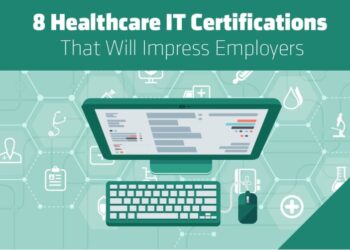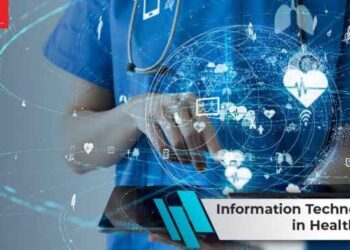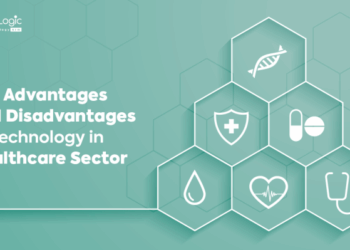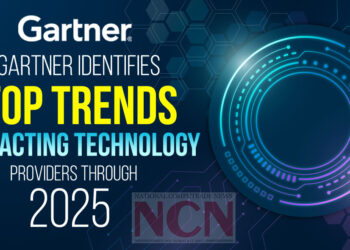How Artificial Intelligence Is Transforming Health Information Technology sets the stage for this enthralling narrative, offering readers a glimpse into a story that is rich in detail and brimming with originality from the outset.
As we delve into the fascinating world of AI in health information technology, we uncover a realm where innovation and efficiency merge to revolutionize the way we approach healthcare.
Introduction to AI in Health Information Technology
Artificial Intelligence (AI) in the realm of Health Information Technology refers to the use of advanced algorithms and machine learning techniques to analyze and interpret complex medical data. AI has the potential to revolutionize healthcare systems by improving efficiency, accuracy, and decision-making processes.
Role of AI in Transforming Healthcare Systems
AI plays a crucial role in transforming healthcare systems by automating tasks, predicting outcomes, and personalizing patient care. Through AI-powered tools, healthcare providers can streamline administrative processes, enhance diagnostic accuracy, and optimize treatment plans.
- AI can analyze large volumes of medical data quickly and accurately, leading to faster diagnosis and treatment decisions.
- AI-powered systems can identify patterns and trends in patient data that human professionals may overlook, aiding in early disease detection and prevention.
- AI applications such as virtual health assistants and remote monitoring tools enable more efficient and accessible patient care, especially in remote or underserved areas.
Examples of AI Applications in Health Information Management
AI is being utilized in various aspects of health information management to enhance decision-making and improve patient outcomes.
- Medical Imaging Analysis: AI algorithms can analyze medical images such as X-rays, MRIs, and CT scans to assist radiologists in detecting abnormalities and making accurate diagnoses.
- Predictive Analytics: AI models can predict patient outcomes, identify high-risk individuals, and recommend personalized treatment plans based on historical data and current health status.
- Natural Language Processing (NLP): NLP technologies powered by AI can extract valuable insights from unstructured clinical notes and patient records, enabling better data organization and analysis.
Benefits of AI in Health Information Technology
AI in Health Information Technology brings numerous benefits that are revolutionizing the healthcare industry. Let's delve into how AI enhances accuracy and efficiency in medical data analysis, impacts patient care and outcomes, and aids in disease prevention and early diagnosis.
Improved Accuracy and Efficiency in Medical Data Analysis
AI algorithms can process vast amounts of medical data quickly and accurately, helping healthcare professionals make informed decisions. By analyzing complex data sets, AI can identify patterns and trends that may not be immediately apparent to human analysts. This leads to more precise diagnoses, personalized treatment plans, and improved patient outcomes.
Impact on Patient Care and Outcomes
AI technology enables healthcare providers to deliver more personalized and proactive care to patients. By leveraging AI-powered tools, such as predictive analytics and remote monitoring devices, healthcare teams can anticipate potential health issues, intervene earlier, and tailor treatments to individual patient needs.
This proactive approach can lead to better outcomes, reduced hospitalizations, and improved overall patient satisfaction.
Assistance in Disease Prevention and Early Diagnosis
AI plays a crucial role in disease prevention and early diagnosis by analyzing risk factors, genetic data, and symptoms to identify potential health threats. Machine learning algorithms can detect patterns indicative of diseases at an early stage, allowing for timely intervention and treatment.
This proactive approach not only improves patient outcomes but also reduces healthcare costs associated with advanced-stage treatments.
Challenges and Limitations of AI in Health Information Technology
AI in health information technology comes with its own set of challenges and limitations that need to be addressed for successful implementation. From ethical considerations to potential biases in algorithms, and integration challenges with existing health IT infrastructure, there are several factors to consider.
Ethical Considerations in AI Use in Healthcare
Ethical considerations play a crucial role in the use of AI in healthcare. Ensuring patient privacy, data security, and informed consent are essential when implementing AI systems. Transparency in how AI algorithms make decisions and the potential impact on patient care are significant ethical considerations that need to be carefully addressed.
Potential Biases in AI Algorithms and Their Implications
AI algorithms are only as good as the data they are trained on, which can lead to biases in decision-making processes. Biases can result in inaccurate diagnoses, treatment recommendations, or patient outcomes. It is crucial to identify and mitigate biases in AI algorithms to ensure fair and unbiased healthcare delivery.
Challenges of Integrating AI Systems with Existing Health IT Infrastructure
Integrating AI systems with existing health IT infrastructure poses several challenges. Compatibility issues, data interoperability, and system integration complexities can hinder the seamless implementation of AI technologies. Healthcare organizations need to invest in robust IT infrastructure and develop strategies to overcome these challenges for successful AI integration.
Future Trends in AI and Health Information Technology
Artificial Intelligence (AI) is rapidly changing the landscape of health information technology, and the future holds even more promising advancements in this field. From personalized medicine to innovative research areas, AI is poised to revolutionize healthcare delivery in the coming years.
Potential of AI in Personalized Medicine and Treatment
AI has the potential to revolutionize personalized medicine by analyzing vast amounts of patient data to tailor treatment plans based on individual genetics, lifestyle, and medical history. Machine learning algorithms can identify patterns and predict outcomes, leading to more effective and targeted interventions.
In the future, we can expect AI to play a significant role in optimizing treatment strategies and improving patient outcomes.
Research Areas Where AI is Making Significant Contributions to Health IT
AI is already making significant contributions to various research areas within health information technology. For instance, AI-powered predictive analytics can help identify patients at risk of developing certain conditions, allowing for early intervention and prevention. Additionally, AI algorithms are being used to analyze medical images, such as X-rays and MRIs, to assist healthcare providers in making more accurate diagnoses.
In the future, we can anticipate further advancements in AI applications for drug discovery, genomics, and population health management.
Final Review
In conclusion, the impact of Artificial Intelligence on Health Information Technology is profound, paving the way for a future where data-driven insights and technological advancements work hand in hand to enhance patient care and outcomes.
Question Bank
How can AI help in disease prevention?
AI can analyze large datasets to identify patterns and risk factors, allowing for early intervention and preventive measures to be implemented.
What are some potential biases in AI algorithms in healthcare?
Biases can arise from skewed data samples, leading to inaccurate predictions or reinforcing existing disparities in healthcare delivery.
How does AI impact the accuracy of medical data analysis?
AI algorithms can process vast amounts of data quickly and accurately, reducing human error and improving the precision of medical data analysis.
How Artificial Intelligence Is Transforming Health Information Technology sets the stage for this enthralling narrative, offering readers a glimpse into a story that is rich in detail and brimming with originality from the outset.
As we delve into the fascinating world of AI in health information technology, we uncover a realm where innovation and efficiency merge to revolutionize the way we approach healthcare.
Introduction to AI in Health Information Technology
Artificial Intelligence (AI) in the realm of Health Information Technology refers to the use of advanced algorithms and machine learning techniques to analyze and interpret complex medical data. AI has the potential to revolutionize healthcare systems by improving efficiency, accuracy, and decision-making processes.
Role of AI in Transforming Healthcare Systems
AI plays a crucial role in transforming healthcare systems by automating tasks, predicting outcomes, and personalizing patient care. Through AI-powered tools, healthcare providers can streamline administrative processes, enhance diagnostic accuracy, and optimize treatment plans.
- AI can analyze large volumes of medical data quickly and accurately, leading to faster diagnosis and treatment decisions.
- AI-powered systems can identify patterns and trends in patient data that human professionals may overlook, aiding in early disease detection and prevention.
- AI applications such as virtual health assistants and remote monitoring tools enable more efficient and accessible patient care, especially in remote or underserved areas.
Examples of AI Applications in Health Information Management
AI is being utilized in various aspects of health information management to enhance decision-making and improve patient outcomes.
- Medical Imaging Analysis: AI algorithms can analyze medical images such as X-rays, MRIs, and CT scans to assist radiologists in detecting abnormalities and making accurate diagnoses.
- Predictive Analytics: AI models can predict patient outcomes, identify high-risk individuals, and recommend personalized treatment plans based on historical data and current health status.
- Natural Language Processing (NLP): NLP technologies powered by AI can extract valuable insights from unstructured clinical notes and patient records, enabling better data organization and analysis.
Benefits of AI in Health Information Technology
AI in Health Information Technology brings numerous benefits that are revolutionizing the healthcare industry. Let's delve into how AI enhances accuracy and efficiency in medical data analysis, impacts patient care and outcomes, and aids in disease prevention and early diagnosis.
Improved Accuracy and Efficiency in Medical Data Analysis
AI algorithms can process vast amounts of medical data quickly and accurately, helping healthcare professionals make informed decisions. By analyzing complex data sets, AI can identify patterns and trends that may not be immediately apparent to human analysts. This leads to more precise diagnoses, personalized treatment plans, and improved patient outcomes.
Impact on Patient Care and Outcomes
AI technology enables healthcare providers to deliver more personalized and proactive care to patients. By leveraging AI-powered tools, such as predictive analytics and remote monitoring devices, healthcare teams can anticipate potential health issues, intervene earlier, and tailor treatments to individual patient needs.
This proactive approach can lead to better outcomes, reduced hospitalizations, and improved overall patient satisfaction.
Assistance in Disease Prevention and Early Diagnosis
AI plays a crucial role in disease prevention and early diagnosis by analyzing risk factors, genetic data, and symptoms to identify potential health threats. Machine learning algorithms can detect patterns indicative of diseases at an early stage, allowing for timely intervention and treatment.
This proactive approach not only improves patient outcomes but also reduces healthcare costs associated with advanced-stage treatments.
Challenges and Limitations of AI in Health Information Technology
AI in health information technology comes with its own set of challenges and limitations that need to be addressed for successful implementation. From ethical considerations to potential biases in algorithms, and integration challenges with existing health IT infrastructure, there are several factors to consider.
Ethical Considerations in AI Use in Healthcare
Ethical considerations play a crucial role in the use of AI in healthcare. Ensuring patient privacy, data security, and informed consent are essential when implementing AI systems. Transparency in how AI algorithms make decisions and the potential impact on patient care are significant ethical considerations that need to be carefully addressed.
Potential Biases in AI Algorithms and Their Implications
AI algorithms are only as good as the data they are trained on, which can lead to biases in decision-making processes. Biases can result in inaccurate diagnoses, treatment recommendations, or patient outcomes. It is crucial to identify and mitigate biases in AI algorithms to ensure fair and unbiased healthcare delivery.
Challenges of Integrating AI Systems with Existing Health IT Infrastructure
Integrating AI systems with existing health IT infrastructure poses several challenges. Compatibility issues, data interoperability, and system integration complexities can hinder the seamless implementation of AI technologies. Healthcare organizations need to invest in robust IT infrastructure and develop strategies to overcome these challenges for successful AI integration.
Future Trends in AI and Health Information Technology
Artificial Intelligence (AI) is rapidly changing the landscape of health information technology, and the future holds even more promising advancements in this field. From personalized medicine to innovative research areas, AI is poised to revolutionize healthcare delivery in the coming years.
Potential of AI in Personalized Medicine and Treatment
AI has the potential to revolutionize personalized medicine by analyzing vast amounts of patient data to tailor treatment plans based on individual genetics, lifestyle, and medical history. Machine learning algorithms can identify patterns and predict outcomes, leading to more effective and targeted interventions.
In the future, we can expect AI to play a significant role in optimizing treatment strategies and improving patient outcomes.
Research Areas Where AI is Making Significant Contributions to Health IT
AI is already making significant contributions to various research areas within health information technology. For instance, AI-powered predictive analytics can help identify patients at risk of developing certain conditions, allowing for early intervention and prevention. Additionally, AI algorithms are being used to analyze medical images, such as X-rays and MRIs, to assist healthcare providers in making more accurate diagnoses.
In the future, we can anticipate further advancements in AI applications for drug discovery, genomics, and population health management.
Final Review
In conclusion, the impact of Artificial Intelligence on Health Information Technology is profound, paving the way for a future where data-driven insights and technological advancements work hand in hand to enhance patient care and outcomes.
Question Bank
How can AI help in disease prevention?
AI can analyze large datasets to identify patterns and risk factors, allowing for early intervention and preventive measures to be implemented.
What are some potential biases in AI algorithms in healthcare?
Biases can arise from skewed data samples, leading to inaccurate predictions or reinforcing existing disparities in healthcare delivery.
How does AI impact the accuracy of medical data analysis?
AI algorithms can process vast amounts of data quickly and accurately, reducing human error and improving the precision of medical data analysis.











